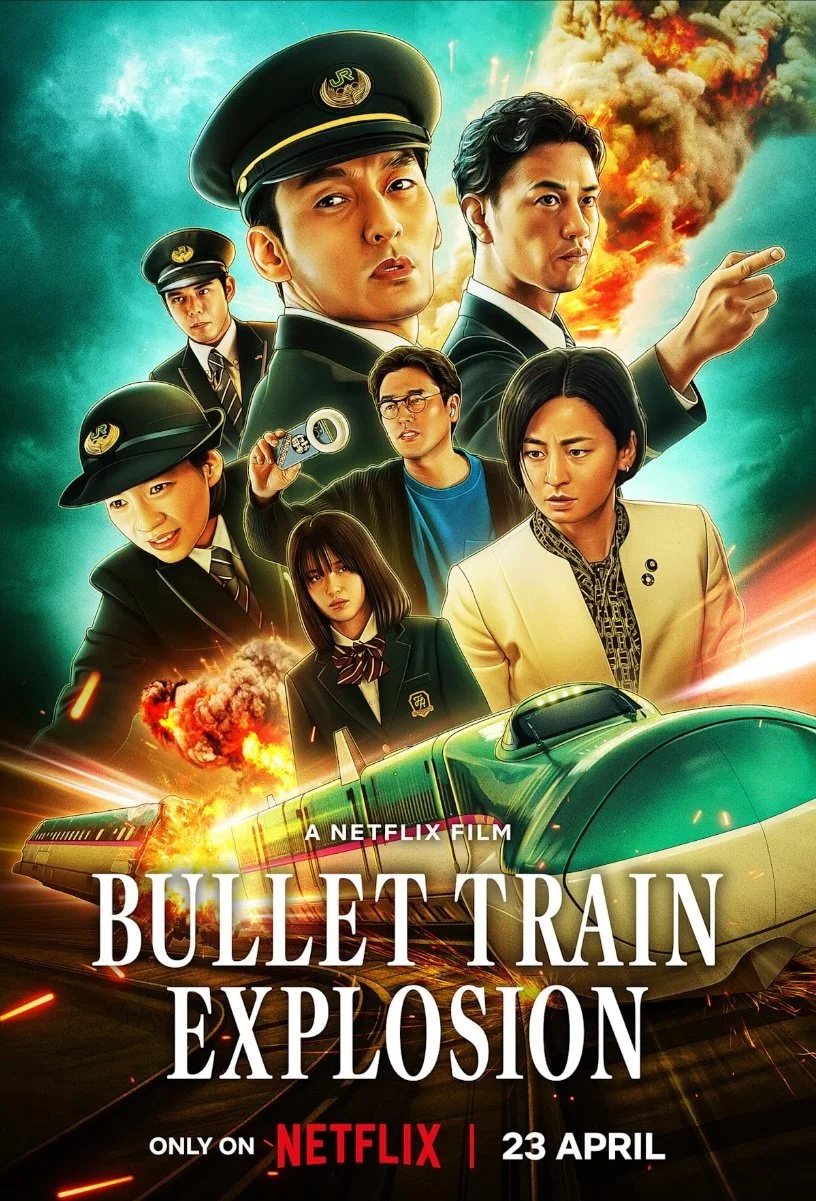Wait—Speed was based on a Japanese movie?
Before Keanu Reeves and Sandra Bullock raced against time on a bus in Speed (1994), Japan had already laid the cinematic groundwork for that high-stakes concept.
The origin lies in The Bullet Train, a 1975 Japanese thriller where a saboteur plants a bomb on a high-speed train that will explode if it slows below 80 kilometers per hour. It’s a tense, tightly wound film that introduced the idea of motion as survival, nearly two decades before Hollywood picked it up.
Watching Netflix’s Bullet Train Explosion, I was immediately reminded of that legacy. This modern reimagining raises the stakes with a sleek Shinkansen, a 100 km/h threshold, and a ransom demand of 100 billion yen. The story unfolds in real time, with train crew, passengers, and government officials caught in a race against disaster. The pacing is relentless, and the tension never lets up.
As someone who has lived in Japan and continues to study the language, I found the film deeply immersive. What stood out most was how it reflects Japanese societal dynamics: the calm under pressure, the layered and respectful communication, and the quiet strength of ordinary people. These traits felt familiar and authentic, echoing experiences I’ve had in daily life and professional settings in Japan.
From a language learning perspective, Bullet Train Explosion is a treasure trove. The dialogue is rich with useful expressions, from formal crisis communication used by railway staff and politicians to casual exchanges among passengers.
It’s an excellent way to hear Japanese in real-world contexts, especially during moments of urgency and emotion. I found myself picking up new vocabulary and appreciating the subtle shifts in tone and register that are so central to Japanese communication.
Visually, the film is sleek and fast-paced. The editing and cinematography mirror the velocity of the train, keeping the viewer engaged from start to finish. But beyond the action, the film offers a layered narrative that touches on themes of public responsibility, political scandal, and the role of media in shaping public perception. These elements add depth and relevance, making the film not just entertaining but thought-provoking.
For anyone interested in Japan, cinema, or simply a well-crafted thriller, this film is a must-watch. Just be ready to suspend disbelief—some scenes stretch the limits of realism, but that’s part of the fun.
It’s entertainment, after all!


